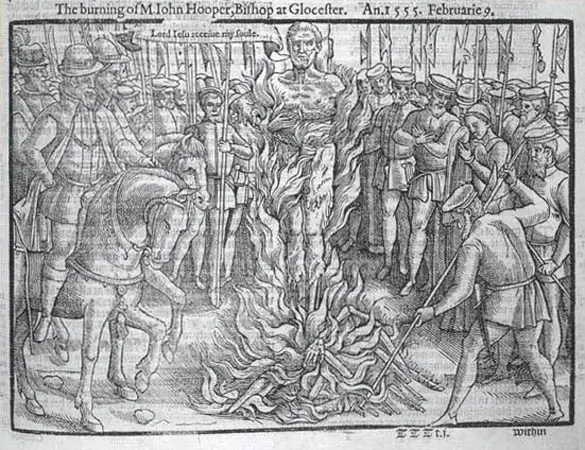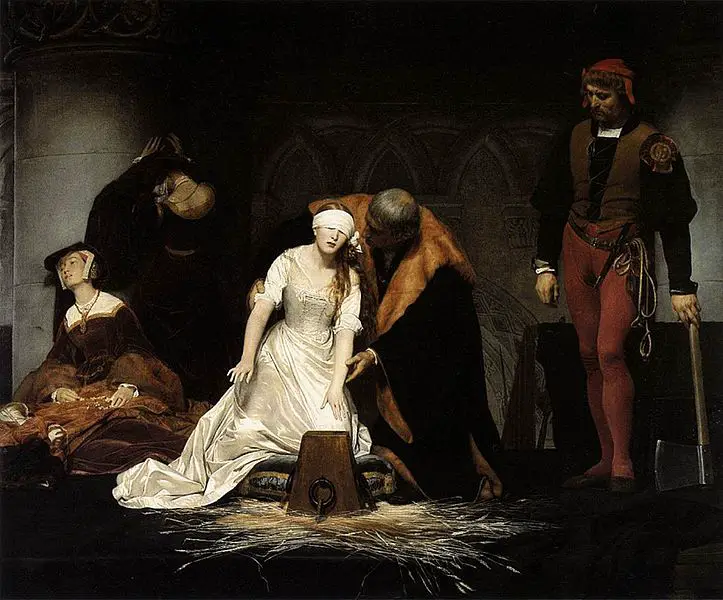Essex was forced to give up after his supporters deserted him, and he surrendered after Lord Admiral Nottingham threatened to blow up his house if he did not give himself up.
Thomas Birch gives an account of the failed rebellion in his book Memoirs of the Reign of Queen Elizabeth: From the Year 1581 Till Her Death Volume II, which is based on original papers from Anthony Bacon and other documents. You can read this at https://archive.org/details/memoirsreignque00bircgoog, from page 462 to 468. Birch records that the Earls of Essex and Southampton were taken first to the Archbishop's Palace at Lambeth, due to stormy weather preventing them from travelling on the Thames to the Tower of London, but taken to the Tower as soon as was possible. The other rebels were "committed to the public prisons". Birch then gives a short account of the rebellion from a letter written by Robert Cecil, Secretary of State, to Sir George Carew, Lord President of Munster:
"Sir George Carew,
Because I am not ignorant, that greatest accidents are most subject to be misreported by such, as are either in passion or ignorance, I have thought it very fit, with all convenient speed to acquaint you with a most dangerous attempt, which hath happened on Sunday last, wherein both her majesty's own person and the usurpation of this kingdom was openly shot at. By this proclamation the proceedings of this earl of Essex will appear, and therefore I shall only need say this unto you, that I think, by that time my letters shall come unto you, both he and the earl of Southampton, with some others of the principals, shall have lost their heads, I send you the note of most of them, that were in open action with, them. If the queen had not put herself in strength that very morning and barricaded Charing-cross and other places of the back parts of Westminster, their resolution was to have been at court by noon: whereof when they understood, they put themselves into London, and from thence (hoping to h»ve been followed by the city) they resolved to come back; but being repulsed at Ludgate by a stand of pikes, and the city holding fast for the queen, they and some fifty of their complices ran to the water, and put themselves into Essex-house, which the earl had furnished with all manner of warlike provisions, and then defended them-selves till towards six o'clock in the evening; at which time the lord admiral sent unto them, that if they would not yield, he would blow up the house, which he might have done sooner, but that the lady Essex and the lady Rich were within it. Whereupon, notwithstanding their great batteries, they all yielded to her majesty's mercy. Thus you have a true relation of this dangerous accident, unto which I will only add this, that even when a false alarm was brought to the queen, that the city was revolted with them, she never was more amazed than she would have been to have heard of a fray in Fleet-street. And thus much for this time I thought good to let you know till farther opportunity, committing you to God's protection.
Your loving and assured friend,
From the court at Whitehall,
Feb. l0, 1600. R O. CECIL."
As you can see, the letter is dated February 1600, rather than 1601, and that's because the Tudor new calendar year did not begin until Lady Day on 25th March.
Also on this day in history, 8th February 1587, Mary, Queen of Scots was executed at Fotheringhay Castle - click here to read more.
Notes and Sources
- Ridgway, Claire (2012) On This Day in Tudor History, MadeGlobal Publishing
- Birch, Thomas (1754) Memoirs of the Reign of Queen Elizabeth: From the Year 1581 Till Her Death. In which the Secret Intrigues of her Court...., Volume II, A. Millar, London, p. 468-9.




Some of those who were imprisoned and then later pardoned afterwards were involved in the Gunpowder Plot, Robert Catesby included. Essex I think was a jealous dandy. He went too far, thought his love affair with Elizabeth, which was rather bizarre, was a signal to share her power. He didn’t know his own place as a courtier and subject and he certainly did not know Elizabeth. Elizabeth was not going to share power with anyone and Essex could not take that. I think he felt rejected by Elizabeth and acted more like these lovers who become over possessive and violent when you tell them it’s over. He had been humiliated in Ireland, he had been kept away from court, seen Elizabeth in her bedroom without her wig and make-up, felt his noble blood deserved more respect and he could force her hand. How do you get the Queen’s attention? You have a revolution. The only thing was it was a small affair, nobody really supported him, it broke down in a wine cellar and Essex was arrested. Of course the arrogant pup still thought he could win Elizabeth over, well hard luck. Elizabeth desposed of him the same way as all traitors. .she had him tried and beheaded. For once, someone acting against the crown probably got his just deserts. He had put Elizabeth in danger, inciting others to join him; Essex really had it coming.
There is a traditional story that Elizabeth gave Essex a ring and told him that if he was in trouble if he sent the ring, then she would forgive him. When Essex was found guilty, so the story goes, Essex waiting for death sends the ring via his wife to the Queen. However, the Countess had fallen out with the Queen…so she doesn’t give her the ring. Essex is executed. This is played out with Bettie Davis and Errol Flynn in Elizabeth and Essex. I don’t know if there is any truth to the tale or it’s origins but it illustrates the dangerous interplay between politics and love at the Tudor court. Elizabeth would share power with nobody…a statement lost on Essex.